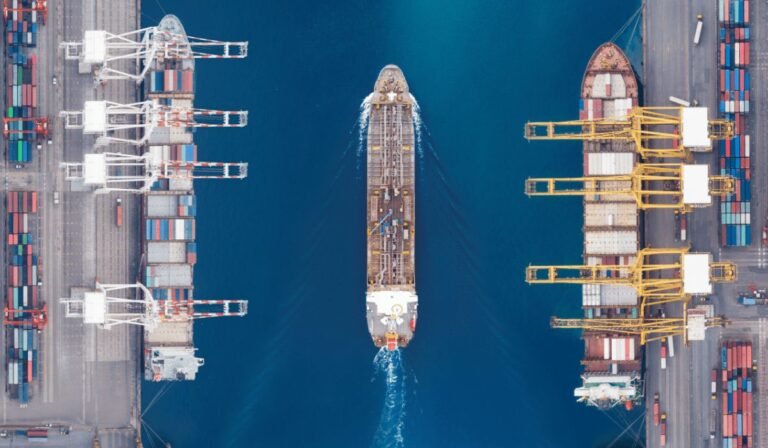What Is LCL Shipping?
Less-than-Container-Load (LCL) shipping refers to transporting smaller cargo consignments that do not require a full container. Instead of paying for an entire container, multiple shippers can share space within a single unit, making LCL shipping a cost-effective option for various businesses. In contrast, Full Container Load (FCL) shipping is when a single shipper’s goods exclusively occupy one container, regardless of whether it is fully packed. By understanding these core differences, businesses can decide which shipping model best fits their operational needs. Explore LCL shipping and its practical applications in global trade for an in-depth overview.
LCL offers a flexible solution for those shipping smaller or irregular shipments with frequency or variances in volume. Businesses leverage this service to maintain agility and affordability in their logistics approach, especially when shipping less than a container’s capacity would otherwise waste resources.
Why Businesses Choose LCL
One of the primary appeals of LCL is the potential for significant cost savings when shipping quantities do not justify the price of a full container. Small and medium-sized enterprises (SMEs), importers, and exporters frequently choose LCL for partial shipments that occur irregularly or involve fluctuating volumes. For example, a company importing limited quantities of specialty goods every month or a retailer launching a trial product in a new market can benefit from sharing container space instead of investing in full capacity.
Additionally, LCL provides a reliable entry point for businesses unfamiliar with global ocean freight shipping—helping them venture into new regions or improve supply chain resilience without the risks associated with unused space.
Types of Businesses That Gain the Most
Small to Medium-Sized Enterprises (SMEs)
SMEs frequently find LCL to be an enabling factor in international trade. With modest shipment sizes and often limited cash flow, SMEs use LCL to enter markets and scale up as demand grows without committing to large inventory investments.
Entrepreneurs and Startups
Minimizing fixed costs is essential for startups and new businesses. LCL enables these organizations to test new suppliers or products incrementally, mitigating risk and providing the flexibility necessary to adapt rapidly.
Companies Testing New Markets
Businesses exploring unknown territories or consumer demographics can do so efficiently with LCL. Sending trial shipments helps determine market potential before investing in larger-scale shipping solutions.
Specific Industries Taking Advantage of LCL
E-Commerce and Retail
Online retailers and e-commerce brands utilize LCL to tap into international sourcing and deliver more products. The model’s flexibility allows businesses to restock more frequently in response to shifting trends and customer demand.
Manufacturers Using Just-in-Time Models
Manufacturers that employ just-in-time (JIT) inventory systems are especially reliant on timely, smaller shipments. LCL provides a structured solution that aligns incoming materials with production cycles, keeping turnaround tight and storage costs low.
Art, Antiques, and Specialty Goods
When handling high-value, unique, or fragile items such as art or antiques, LCL offers tailored shipping where special handling for small consignments is prioritized. This industry enjoys the reduced risk of overexposure and additional costs associated with oversized shipments.
Challenges and Considerations
While LCL has significant advantages, it also has challenges. Transit times can be longer due to the necessary consolidation and deconsolidation processes at origin and destination ports. Each shipment must be grouped with others, requiring additional handling and increasing potential delays or damage.
Security and cargo risks also warrant consideration, as goods share space with other suppliers’ freight. Careful selection of carriers and adequate insurance coverage are vital for mitigating potential losses. The multi-stop journey inherent in LCL means shippers must remain vigilant with documentation, cargo integrity, and trusted partners.
Comparing LCL and FCL: Making the Right Choice
The decision between LCL and FCL is fundamentally guided by shipment volume, available budget, and time-sensitive delivery deadlines. LCL is ideal for shipments that don’t fill an entire container and those looking for flexibility in scaling operations. Conversely, FCL becomes cost-effective for larger shipments, reduces handling, and often results in faster transit with fewer stops. Balancing these factors is crucial for efficient supply chain management.
Global Demand and Recent Shipping Trends
Demand for LCL has risen dynamically in recent years, driven by shifting consumer expectations, supply chain disruptions, and the surge in e-commerce. Global shipping backlogs—such as those reported in the Wall Street Journal—have enhanced the need for flexible shipping services. The increasing unpredictability of international logistics, noted by Reuters, has further underlined the value of adaptable LCL solutions in today’s market.
Tips for Maximizing the Value of LCL Shipping
- Plan: Shipments should be organized in advance to align with consolidation schedules and avoid last-minute surcharges.
- Partner with experienced freight forwarders: Nurturing solid relationships with logistics experts can streamline customs clearance and protect your cargo.
- Understand documentation and insurance: Adequate paperwork and cargo insurance safeguard your interests during transit, especially when sharing container space.
- Insist on reliable tracking: Engage with providers offering comprehensive tracking and transparent communication to maintain visibility throughout shipping.
Who Should Consider LCL Shipping?
LCL shipping is a powerful logistics tool for SMEs, entrepreneurs, and companies moving small or irregular freight volumes. Its affordability and flexibility create new opportunities for those testing markets, sourcing globally, or optimizing inventory levels. However, careful planning, trustworthy partners, and attention to logistics detail are essential to realize its full value. As global trade continues to evolve and market demands shift, businesses of all sizes should consistently review their shipping strategies to identify whether LCL could benefit their growth.
